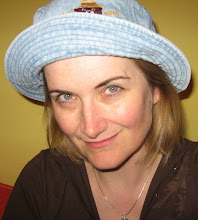
I didn't really think they could do it. You see, the team pictured above was the one to beat in the final match. Don't they look official and athletic? Turns out they were the cream of the local police.
Our team, who you could call the Pokhara Irregulars, did not have spiffy uniforms or even matching outfits. But they had two killer advantages. The first being the portly team captain pictured here stoking up on Buff Mos-Mos (Buffalo Meat Stuffed Dumplings) during a quick break immediately before the final contest. He has led his team to victory for 5 years running.

Their second advantage was my husband as anchor man. At least a half foot taller and 10+ years older than all other competitors, he still has his carpenter's muscles despite a year now of retirement. As a former Yugoslavian Karate Champion, he also has an inbred fighting spirit. (Although by the way the other players looked startled and confused when he chanted things like "We will win! We will beat you!" it seems the Nepali fighting spirit is a bit more courtly than our Western style.)
The day started quietly enough. We were sunbathing on our hotel balcony when up paraded a recruitment delegation including the hotel manager and our friend Babu. My husband initially naysayed joining the team they sponsored because he was scheduled to go for a paraglide an hour before the event. "Is OK! We send car there for you! We pick you up for Tug of War!" the men insisted.
This was quite remarkable because no one uses cars for anything here lightly. Cars are reserved for professional taxi drivers and very rich emmigres. Plus, gas prices are rising so no one drives an inch more than they have to; and, most streets were barricaded for the big street festival. Awed by this display of passion - sending a car! - my husband assented.
Of course he was late, but this is Nepal so everyone else involved in the grand annual tug of war championship was late too, so everything was perfect. Cheered on by more than 200 spectators, including a live Nepali band featuring traditional horns and drums, a total of six

teams duked it out. After winning two heats, it was time for the final round. I was very nervous they might not win, but apparently the team captain was so confident he told my husband as an aside to "act a little weak, put on a show for crowd." Otherwise it would have been over in a heartbeat.
When they won, the two teams did that Western sports lining up and shaking each other's hands thing. Then the dignitaries - the police chief, the highest ranking local army officer, and the head of the merchant's association - did the Nepali thing and rubbed dry red dye onto all the winners' and losers' faces. Losers just got it on both their cheeks; winners got a big glop on their foreheads as well. That took the place of an actual trophy, you get to walk around all night aftewards parading your winning color.
Then, as everyone else was joining in a victory street dance, a TV crew standing by asked to interview my husband. I thought it was a bit unfair him being singled out like that when really his team captain had probably more to do with the win. But I guess a big, shaggy, grey-haired Serbian guy with red paint all over his face is more memorable media moment. We'll get to see on Friday when his interview is broadcast on Nepali TV.
In the meantime, sometimes when we walk down the street complete strangers call out to him "Tug of War! Tug of War!" and he nods his head graciously.
 When I saw this photo, I immediately cleaned my camera lens. But the photos I took before and after this one of different moments in the same early evening in Nepal were sharp and clear. I showed my husband. "Nepali spirits are very active," he said.
When I saw this photo, I immediately cleaned my camera lens. But the photos I took before and after this one of different moments in the same early evening in Nepal were sharp and clear. I showed my husband. "Nepali spirits are very active," he said. Note, again, none of the other photos I took that night had the same bubble and my lens was not dirty.
Note, again, none of the other photos I took that night had the same bubble and my lens was not dirty.









